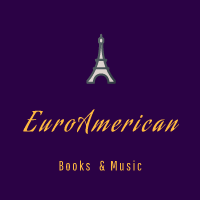Catholicism and the Work Ethic in France - from CatholicJournal.us
24 Nov, 2024,
No comments
We visited Paris again, this time in late October with Catholicism on our minds, while at the same time trying to get the election off our minds. Success, but throughout our 10-day series of events, Paris taught us important reasons for the election outcome. France is a working man’s culture, and so is America; that is, the down-to-earth, levelheaded Americans, and that is who pushed President Trump over the victory line.We often hear of the declining Church membership of French citizens and after visiting three neighborhood churches in a section of Paris called Boulogne Billancourt, I can attest. St. Jean de Chantal, St. Cecile, and Immaculate Conception are sparsely attended neighborhood churches which made me wonder how they could survive financially. On a previous visit, St. Sulpice and St. Germain de Pres were SRO Sunday Masses, so they were not perhaps uniform throughout the country or city. But trends indicate that Evangelical Protestantism, Islam and especially atheism are increasing rapidly.
What we did witness however, is the workaday world of Parisians. Community and service to the community are words that come to mind. In the process of that workaday service, always a ‘bonjour’, always a ‘merci’ and pleasantry among customers and fellow workers. The good-natured youth working in fast food restaurants and lesser cafes impressed us, along with their daily public transportation commutes, without a grouchy outburst among them.
We also hear of the French trends toward socialism. My own visits in the 1980s observing President Francois Mitterrand’s mission of ‘Euro-socialism and America’ seemed to be the start of it all. But France is hardly socialist yet. My goodness, the country is dominated by what we may refer to as corporate France. A large central government and socialized medicine yes, but its healthy GNP exists from the likes of the many fashions, health care, retail and financial concerns throughout, not to mention wine, agriculture, and transportation enterprises.
With that comes its working-class morality, its Catholic roots in insisting on the worker's need for dignity and productivity, and the ubiquitous organized unions demanding their fair wage and economic justice for all. Included in that is the entrepreneurial nature of the French with its small shops and businesses everywhere. I call those Catholic foundations.
French family life and its workaday world seems to keep France levelheaded and moderate in lifestyle. Yes, a little left leaning politically, but that is the young, always. As a professional educator, I had the opportunity of working with international professionals, teaching them professional English. My French students [well, insurance execs, doctors, politicians, bankers] would always talk of their youthful plunge into left wing politics. They would express their tilt toward Marxism and working-class interests, but never in the terms of identity politics as expressed by the American left. To me, it seems the American left has given up on the working class. They twisted Marxism by exploiting race and ethnic disparities, a sort of Neo-Marxism. The French see it differently. The French culture dominates. The dozens of worldwide Africans, Asians, Middle East immigrants that we encountered all spoke impeccable French. They all identified as French. They all were proud of France; save for some intransigent Muslims we all hear about. We didn’t see them. Upper middle-class Boulogne Billancourt is not for them. The Catholic Church does not look at enculturation in the Neo-Marxist sense either.
We are all the body of Christ. We are Americans, but we are Christians first. They were all French, not sure of their religions.
On a negative note, we were not thrilled by seeing everyone with their heads buried in their cell phones. It’s worse than the U. S., and even around La Sorbonne, University of Paris. You would think their heads to be swimming in philosophy, sociology, psychology, anthropology, history, and all ideas talked of by their secular priest professors. No, technology has got control of them. Perhaps this is the new socialism, and as I mentioned above, it’s probably not Jesus, Him and Him crucified in their heads.
Two Authors Every Christian Should Read
3 Aug, 2022,
No comments

